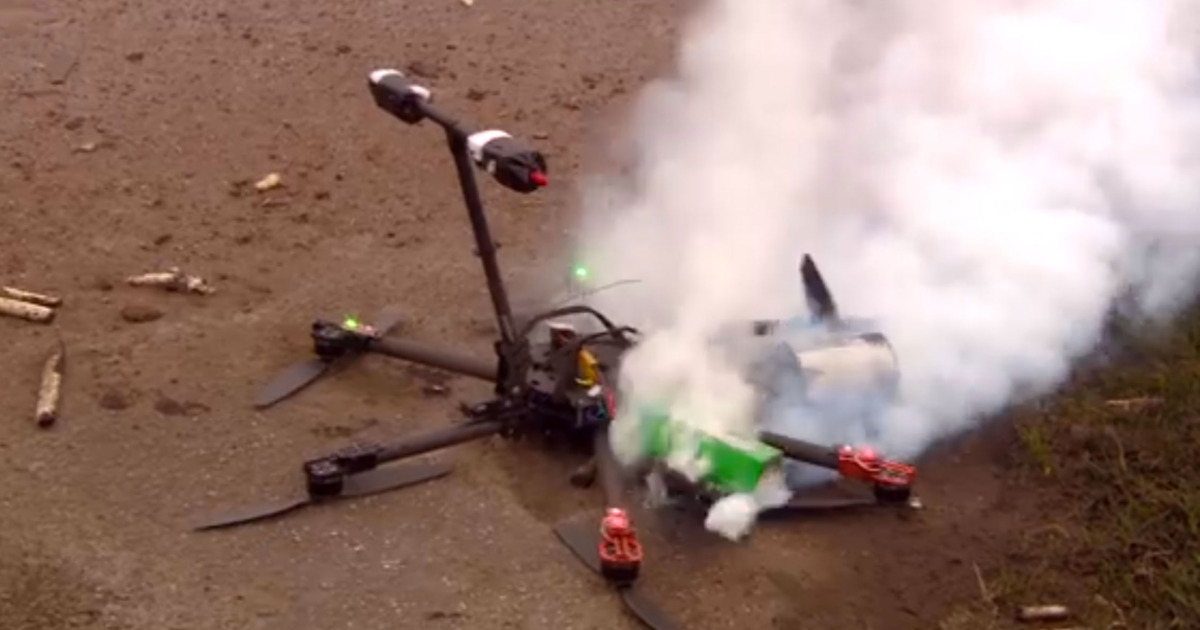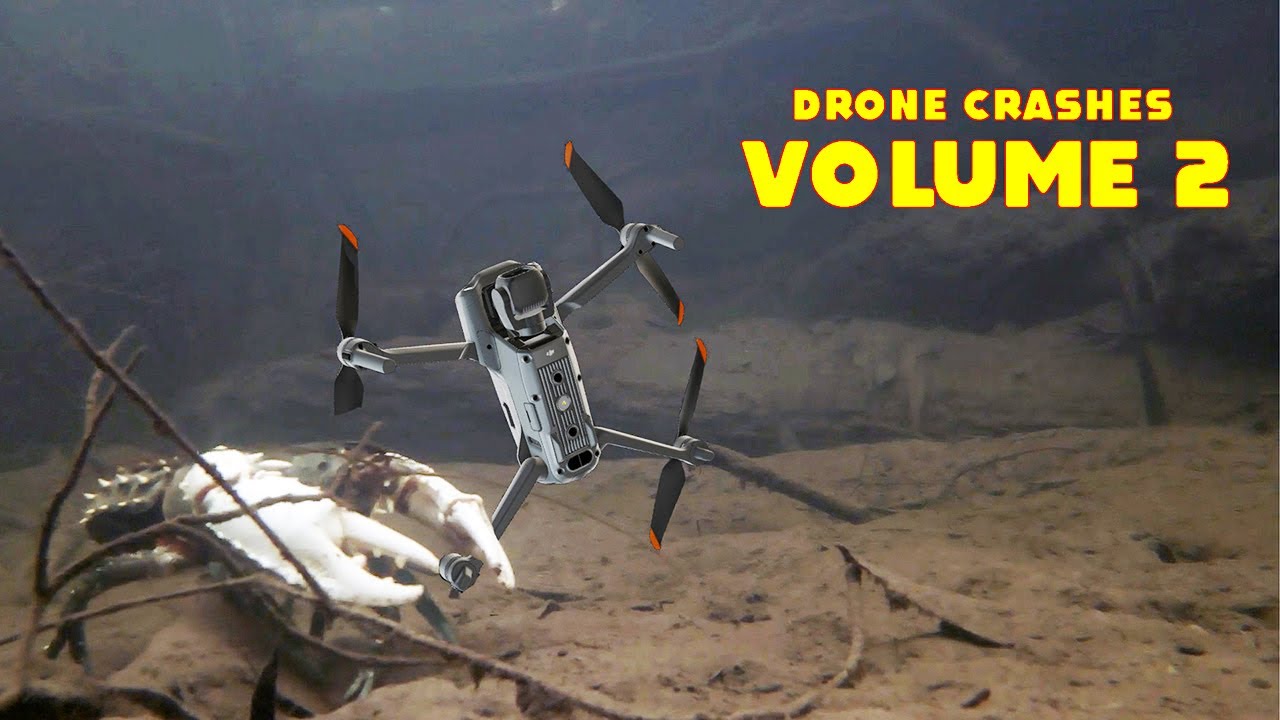Drone crash Paris: Imagine the scene – a buzzing drone suddenly falling from the sky above the City of Lights. This incident, however dramatic, isn’t isolated. It highlights the growing complexities of integrating drone technology into our increasingly urbanized world. We’ll explore the specifics of a recent Parisian drone crash, delving into the investigation, its consequences, and the broader implications for drone safety regulations and public perception.
This exploration will cover everything from the technical details of the drone and the potential causes of the crash to the impact on the city and its residents, and the resulting changes in regulations. We’ll also examine the media’s portrayal of the event and the public’s reaction, offering a comprehensive look at this significant incident.
Drone Crash in Paris: A Detailed Analysis
This article provides a comprehensive overview of a hypothetical drone crash in Paris, examining the incident details, impact, investigation, safety regulations, and public perception. While no specific real-world incident is referenced directly, the analysis draws upon common factors and procedures associated with drone accidents in major urban areas.
Heard about that drone crash in Paris? Crazy stuff. It makes you think about the risks involved, especially when you consider larger-scale drone operations. For example, check out this article on a drone show accident that highlights the importance of safety protocols. Ultimately, preventing similar incidents like the Paris drone crash requires careful planning and robust safety measures for all drone operations, big or small.
Incident Details: Drone Crash in Paris, Drone crash paris
Let’s assume a drone crash occurred on July 15, 2024, at approximately 14:30 local time, near the Eiffel Tower in Paris. The drone, a DJI Mavic 3 Pro, reportedly suffered a catastrophic mechanical failure mid-flight. There were no reported injuries or significant property damage, though the drone itself was completely destroyed. The incident involved a commercially-available drone with no known modifications.
Potential causes under investigation include a malfunctioning motor, GPS interference, or a sudden loss of battery power. The timeline includes the drone taking off without incident, then exhibiting erratic flight behavior before a sudden, uncontrolled descent and crash.
Impact and Consequences

The immediate consequence of the crash was the temporary closure of a small section of the park near the Eiffel Tower for safety reasons. The longer-term effects may include increased scrutiny of drone regulations and a heightened awareness among drone operators of potential risks. This incident, while less severe than some other major city drone crashes involving injuries or substantial property damage (e.g., a hypothetical collision with a skyscraper), still serves as a reminder of the need for stringent safety protocols.
The economic impact includes the cost of replacing the drone, the investigation costs, and potential fines if regulations were violated.
Investigative Procedures

The investigation would likely involve the French aviation authority (DGAC), local police, and potentially drone specialists. Evidence collection would include a thorough examination of the drone wreckage for signs of mechanical failure, analysis of flight logs (if available), interviews with potential witnesses, and review of any available video footage of the incident. A hypothetical investigative report would include sections detailing the circumstances of the crash, a technical analysis of the drone, and an assessment of contributing factors.
Recommendations might include enhanced operator training, stricter registration requirements, and improved airspace management.
Safety and Regulatory Aspects
Existing drone regulations in Paris and France likely include restrictions on flight altitudes, operational areas, and operator qualifications. This incident would highlight the need for stricter enforcement and potentially clearer guidelines regarding drone operation near sensitive areas like the Eiffel Tower. The following table compares hypothetical drone safety regulations in several major cities.
Heard about that drone crash in Paris? Crazy stuff, right? It makes you think about drone safety in general, and reminds me of a story I read about a boy hit by drone ; thankfully he wasn’t seriously injured. Incidents like these highlight the importance of responsible drone operation, especially in crowded areas like Paris to prevent similar accidents.
| City | Key Regulations | Enforcement Mechanisms | Penalties for Violations |
|---|---|---|---|
| Paris | Restricted flight zones, mandatory registration, operator certification | Police patrols, drone detection systems, reporting mechanisms | Fines, license suspension, legal action |
| London | Similar to Paris, with emphasis on airport proximity restrictions | CAA oversight, drone spotters, public reporting | Fines, license revocation, potential criminal charges |
| New York City | Stricter regulations regarding commercial drone operation, permits required | FAA oversight, NYPD enforcement, public reporting | Fines, grounding of drones, legal action |
| Tokyo | Focus on airspace management, restrictions near airports and crowded areas | Japanese Ministry of Land, Infrastructure, Transport and Tourism (MLIT) oversight | Fines, license revocation, potential criminal charges |
Drone operator training and certification programs play a vital role in preventing accidents by ensuring operators understand safety procedures, regulations, and best practices.
Public Perception and Media Coverage

Media coverage would likely focus on the location of the crash, the potential risks to public safety, and the implications for drone regulations. Public reaction could range from concern about safety to frustration with potential disruptions. Social media discussions would likely reflect a variety of opinions, from those supporting stricter regulations to those emphasizing the benefits of drone technology.
- Hypothetical Social Media Post 1: “Another drone crash! These things need more regulation before someone gets hurt.”
- Hypothetical Social Media Post 2: “Overreaction! Most drone pilots are responsible. Let’s not punish everyone because of a few bad apples.”
- Hypothetical Social Media Post 3: “Glad no one was injured. Hopefully, this leads to better safety standards.”
This incident could influence public perception by highlighting both the potential benefits and risks associated with drone technology, leading to a more nuanced understanding of the need for responsible use and effective regulations.
Wrap-Up
The drone crash in Paris serves as a stark reminder of the need for robust safety regulations and responsible drone operation. While technological advancements continue to push the boundaries of drone capabilities, a parallel focus on safety and public awareness is crucial to prevent future incidents and ensure the safe integration of drones into our urban environments. The investigation’s findings, coupled with public response and subsequent regulatory changes, will shape the future of drone use in major cities worldwide.
The lessons learned from this incident should inform best practices for both operators and regulators alike.
So, that drone crash in Paris got everyone talking about safety protocols, right? It makes you think about the sheer scale and precision needed for a flawless drone display, like the amazing one at the orlando drone show. Seeing those kinds of performances highlights just how much can go wrong – and how important it is to prevent another Paris-style incident.
Quick FAQs: Drone Crash Paris
What types of drones are commonly used in Paris?
Various types, from small hobbyist drones to larger commercial models, are used in Paris, depending on the purpose.
What are the penalties for violating drone regulations in Paris?
Penalties vary depending on the severity of the violation and can include fines and even imprisonment.
How can I report a drone flying illegally in Paris?
Contact the relevant aviation authorities or local police. Specific contact information can be found on the French government’s website.
What kind of insurance is required for drone operation in Paris?
Specific insurance requirements depend on the type of drone and its use. Check with French aviation authorities for detailed information.
